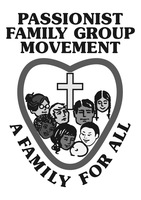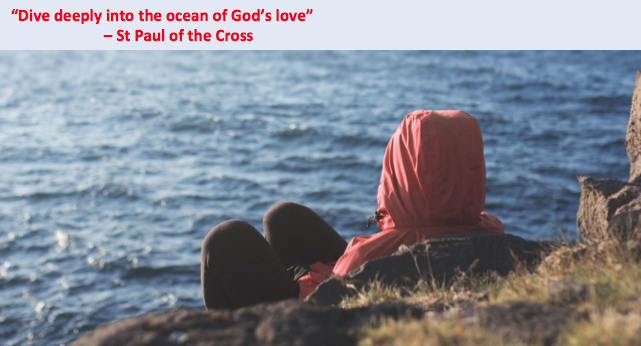Dear Friends and PFG Team,
Another week has passed and there are expectations for some changes for Auckland and Waikato, a sort of loosening up of restrictions. Not sure how it is going to go but from the people having close to 11 weeks in lockdown I am sure it is a relief and will be welcomed.
It’s how people keep complying to the rules that in the end will keep each other safe. We all do our bit.
It is interesting to reflect on the impact of demands, criticisms and the people proclaiming ‘my rights’ even those who are anti-vaxers. Sometimes, I think we can fail to see the whole picture. This pandemic is not isolated to one community or one country. It has had a devasting effect in most countries. After seeing Melbourne easing restrictions after the longest lockdowns of any country in the world and cases are still as of yesterday just under a thousand…hopefully this downward trend continues. It is a challenge on every health system.
For me personally, I have been reflecting on the term “common good” which is a core principle in the Catholic Social teaching of the church. I have a sense that many focus on ‘me’ and our own entitlements. Yet, for many there are no hospital beds, not enough vaccine, not enough medical equipment etc. We do have a sense of the haves versus the have nots and that to me is sad but also, not right. Where is our commitment to each other? Where is our care for all? Our sense of being a community or seeking out those lost or ill?
We have seen great commitment by our frontline workers and carers – they are and have been awesome. So, to keep them safe and each other safe we are all best to give over a little of ourselves to protect the majority. This theme and principle of the ‘Common Good” is something we could use in our speech, action, and service to others. A core principle where we build sustainable and strong well-being communities.
l will leave you with an article written by: Jim Wallis, founder of Sojourners ministry and a long-time friend of Fr. Richard Rohr ofm, who connects the idea of the common good with Jesus’ proclamation of the Kingdom of God.
“I believe the moral prerequisite for solving the deepest problems this country (USA) and the world now face is a commitment to an ancient idea whose time has urgently come: the common good. . . .
Our life together can be better. Ours is a shallow and selfish age, and we are in need of conversion—from looking out just for ourselves to also looking out for one another. It’s time to hear and heed a call to a different way of life, to reclaim a very old idea called the common good. Jesus issued that call and announced the kingdom of God—a new order of living in sharp contrast to all the political and religious kingdoms of the world. That better way of life was meant to benefit not only his followers but everybody else too.
Christianity is not a religion that gives some people a ticket to heaven and makes them judgmental of all others. Rather, it’s a call to a relationship that changes all our other relationships. Jesus told us a new relationship with God also brings us into a new relationship with our neighbour, especially with the most vulnerable of this world, and even with our enemies. But we don’t always hear that from the churches. This call to love our neighbour is the foundation for re-establishing and reclaiming the common good, which has fallen into cultural and political—and even religious—neglect.
Judaism, of course, agrees that our relationship with God is supposed to change all our other relationships, and Jesus’s recitation of the law’s great commandments to love God and your neighbour flows right out of the books of Deuteronomy [see 6:5] and Leviticus [see 19:18]. . . . In fact, virtually all the world’s major religions say that you cannot separate your love for God from your love for your neighbour, your brothers and sisters. Even the nonreligious will affirm the idea of “the Golden Rule”: “Do to others as you would have them do to you” (Luke 6:31). . . .While some form of the Golden Rule has been around for thousands of years, we seem to have lost a sense of its importance and its transformative power. Wallis urges:
It is time to reclaim the neglected common good and to learn how faith might help, instead of hurt, in that important task. Our public life could be made better, even transformed or healed, if our religious traditions practiced what they preached in our personal lives; in our families’ decisions; in our work and vocations; in the ministry of our churches, synagogues, and mosques; and in our collective witness. In all these ways we can put the faith community’s influence at the service of this radical neighbour-love ethic that is both faithful to God and the common good.”
“To conquer fear is the beginning of wisdom” – Bertrand Russell
Some room for thought and good for PFG discussion:
The End of Life Choice Act comes into effect on November 7 in New Zealand. Please take the time to read the Bishop’s Statement on this along with the Guidelines that accompany this statement. Both are excellent.
Go to these links for PDFs of
the Pastoral Statement and the Guidelines from the bishops.
“ I cannot and will not cut my conscience to fit this year’s fashion – Lillian Hellman
32nd Sunday Ordinary Time Year B, 7 November 2021. Let our loving actions show our care for the outcasts and the marginalised.
Lectionary readings
First reading: 1 Kings 17:10-16
Responsorial Psalm: Ps 145(146):7-10
Second reading; Hebrews 9:24-28
Gospel: Mark 12:38-44
Link to readings – Click here to view readings
Our readings this week explore the concepts of generosity, humility and self-giving. With the help of the Holy Spirit, they encourage us to live our lives as generously as Jesus did.
The First Reading tells us of a poor destitute widow who shows great generosity in her willingness to share what she has with the prophet Elijah, even though widows were among the most vulnerable people in biblical times. In the Gospel, too, it is a widow who wins the praise of Jesus as he observes her give everything she possesses to the Temple treasury. He contrasts this woman’s action of deep faith and generosity with that of others, whose behaviour he roundly condemns. Jesus holds her up as a role model to his disciples.
The letter to the Hebrews explains how Jesus undertook an even greater sacrifice, and as the compassionate high priest, offered the gift of his own life for the salvation of mankind. (Second Reading) The Psalmist encourages us to call on our innermost self, our ‘soul’, to give praise to God: our true God who has great concern for the poor, including widows and orphans.
Let us pray this week to the Lord who supports the vulnerable and poor for the grace to be his instruments on earth. We ask for his help to show our care for the outcasts and marginalised of our own day through our loving actions.
Humour:
- What rock group has four men that don’t sing? Mount Rushmore.
- When I was a kid, my mother told me I could be anyone I wanted to be. Turns out, identity theft is a crime.
- A guy goes to his doctor because he can see into the future. The doctor asks him, “How long have you suffered from that condition?” The guy tells him, “Since next Monday.”
- What do sprinters eat before a race? Nothing, they fast!
- What concert costs just 45 cents? 50 Cent featuring Nickelback!
- What do you call a mac ‘n’ cheese that gets all up in your face? Too close for comfort food!
- Why couldn’t the bicycle stand up by itself? It was two tired!
- Did you hear about the restaurant on the moon? Great food, no atmosphere!
- Why do melons have weddings? Because they cantaloupe!
- What happens when you go to the bathroom in France? Europea
Keep safe and keep your heart and faith in yourself and others intact. God will be with you.
Keep the great job up of looking out for one another – it is tough and we will get through this.
What doesn’t break us makes us stronger. Or as St Paul says, when I am week then I am strong.
God go with you – Fraternally,
Paul

